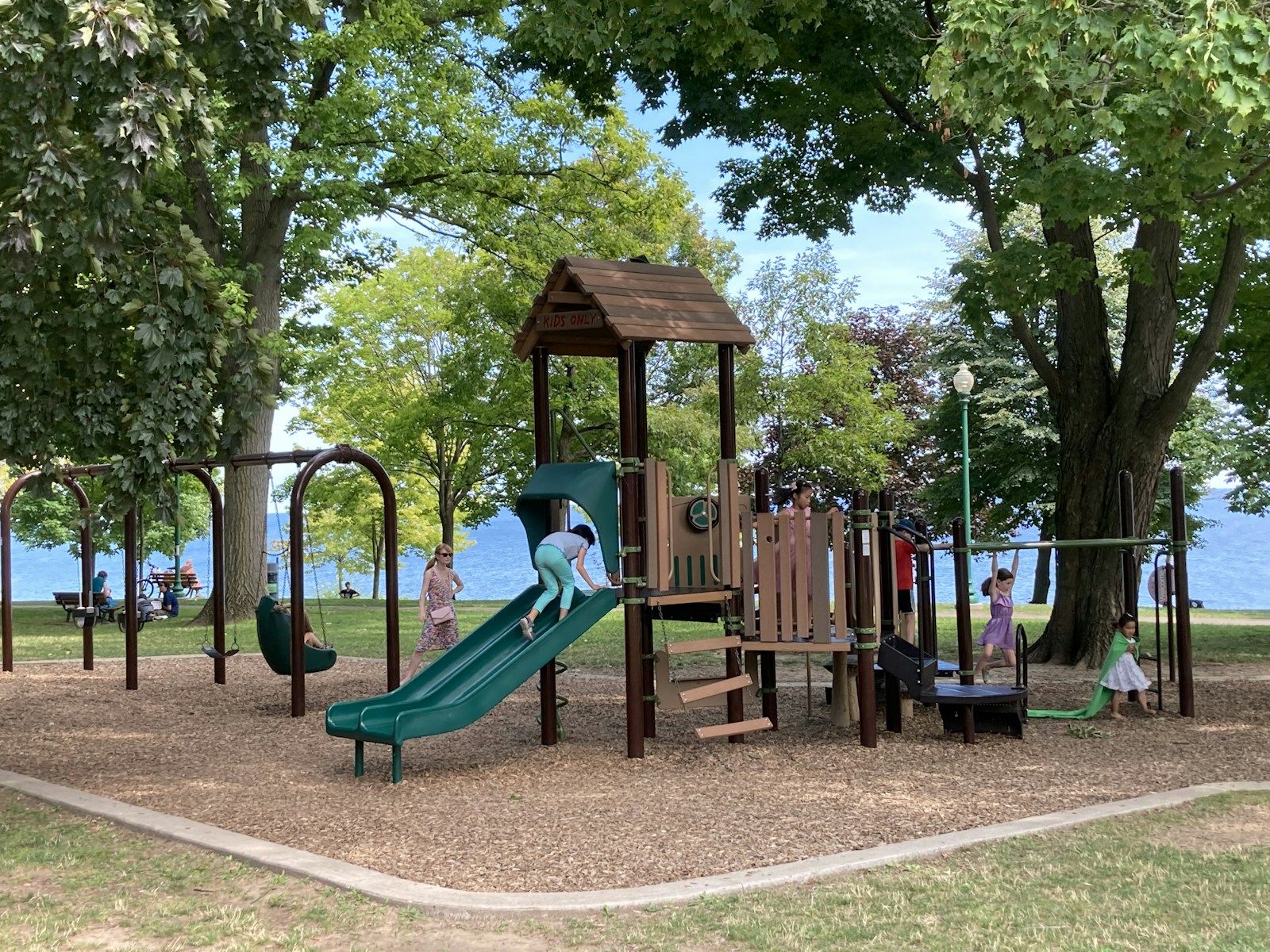Check back soon for exciting real estate news, local events, and more!

Check back soon for exciting real estate news, local events, and more!

Stay tuned. More coming soon on White Rock real estate news, local events, and more!

Are you looking for the best shopping spots near Langley, British Columbia? Well, look no further! Here, we have compiled a list of all the shopping malls, shopping centers and stores near Langley Centre that you must visit when in town. From designer clothing stores to thrift shops, there is something for everyone here. So read on to find out more about these amazing places and start planning your shopping spree today!
Stop the search - Lindsie Tomlinson is your go-to realtor for finding the perfect house in Langley, BC! She knows the local market like no other and will help you find your dream home that meets all your requirements. Contact her today.

Langley is the perfect place for families to explore and enjoy outdoor activities. With its abundance of parks and playgrounds, Langley has something for everyone. From family-friendly parks to thrilling playgrounds, Langley offers a wide range of activities that can be enjoyed by all ages. In this article, we will take a look at some of the best playgrounds and parks in Langley BC that are sure to provide hours of fun for the whole family.

Visiting a playground or park is an ideal way for families to spend quality time together. Parks provide a safe and fun environment for children of all ages to explore, play, and learn. Whether you are looking for a place to picnic or just want to get some fresh air, these parks have something for everyone.

Langley, BC is home to some of the most popular playgrounds and parks in the country. With its lush green spaces, beautiful views, and a variety of activities for all ages, it's no wonder why these parks are so popular. Whether you're looking for a place to take your kids to play or just want to explore the outdoors, Langley has something for everyone. From park attractions to kid-friendly activities, these five locations have something for everyone!
If you're looking for the perfect home in Langley, BC, then look no further than Lindsie Tomlinson! With her expertise and knowledge of the area, she can help you find the right home for your needs. Whether you're looking for a place to take a leisurely stroll or an area to have a picnic with family and friends, Lindsie has got you covered. She will guide you through all of the homes in Langley and help you decide which one is best suited for your needs. With her assistance, finding the perfect home in Langley BC is easy!
Last month, I wrote an article for REW.ca called Don't Run Out of Hope When Buying a Home. It should probably have been more aptly titled, "Don't Run Out of Hope When Buying a Home in Vancouver", but well, that was implied if you were reading in on REW.ca.
So for my next article for them, I wanted to interview two real life clients of mine, and get their thoughts and feelings about their personal experience while trying to buy a condo in Vancouver as first time home buyers. I've changed their names for privacy, but read on for my interview with them. And don't run out hope if you too are searching for a home to buy in Vancouver.
Meet “Cynthia” and “Jordan”* – a professional couple in their mid-thirties with a toddler son. They were looking for a two-bedroom condo in their beloved neighbourhood of Hastings Sunrise. Their must-haves were location, some outdoor space, and a solid building. Here’s what they told me.

A few things: the financial ability, because I got an inheritance from my grandfather; wanting more security because of Oscar (we want our son to grow up in a stable environment); fear of losing our current rental because rent prices have gone up substantially in three years; and fear that we wouldn’t be able to find an affordable family-friendly rental in the city.
We felt hopeful for a while. We felt like we could “get in” – and we had never felt like that before. We felt like it was actually possible.
But then everything kept selling for way over for what things were listed at, and we felt disheartened. We would see places we liked and then they would go for seventy thousand over asking. That was disheartening. You think you can buy something and then you can’t.
So hard. It was devastating. We wanted to offer more money, but my parents (we needed their support to buy because they are holding the inheritance) didn’t understand this market. They’ve always bought houses being able to negotiate. They asked, “Why would you go in so much over asking on your first offer?”
You get attached… even with the second place ,which was the least exciting for us, you start to kind of see it as your place, you envision yourself there, you write a letter to the owner, which makes you feel even more attached to it. By the third time, though, we had learned not to get our hopes up.
After their third offer – and their third time losing out in a multiple-bid scenario – Jordan was laid off from his job, which forced him and Cynthia to take a break from their search. This time, the decision not to buy a home was suddenly being made for them by something beyond their control, and they were understandably upset.
Over the next few months, however, they regrouped. And more than seven months after their search had begun, they found a condo in their neighbourhood that more than ticked off every one of their “must have” boxes. We prepared for battle once again.
This time, just 20 minutes before the offer deadline, we finally got a break and some good news: somehow, ours was going to be the only offer.
This meant that, as their REALTOR®, I got to do some good old-fashioned negotiating. And Cynthia and Jordan were finally able to buy the family home they had been craving.
We are feeling excited about getting to make the space our own and relieved that the search can now end! A bit sad about leaving our street, where our immediate neighbours are our greatest friends. Worried that the market will crash tomorrow. Thankful to be able to afford to own in Vancouver– and to have had an agent who made it even more affordable! And really happy to have a place of our own to raise our son.
Finding the perfect home can be exhausting and emotional - just like training for a marathon.
When I was in my twenties, I spotted an ad that invited me to raise money for a charity by running a “destination” marathon. The idea was that you’d train with a group in Vancouver and raise a minimum amount for a good cause, and then you’d travel with the group to a destination like Honolulu to participate in a 26.2 mile (42 kilometre) marathon.
I had never run a day in my life.

I told my then-boyfriend I was considering running a marathon. He immediately told me I couldn’t do it: “That’s like running from here to Hope! You think you can do that?”
(He was wrong, of course. Hope, BC is 154 kilometres from Vancouver. I only wanted to run 42 kilometres.)
So after I dumped Mr. Negativity, I signed up with Joints in Motion to raise money for the Arthritis Society while training for my first marathon. I showed up for our first group run of five kilometres, determined to do this.
It wasn’t easy. I was slow, I was out of breath, and at times I wanted to stop putting one foot in front of the other. But I did it. I ran five kilometres! That accomplishment felt like I had run a marathon already!
During the course of my four months of training and then running the actual marathon itself, I learned that marathons are often more of a mental challenge than a physical one.
The same can be said for buying a home in Vancouver.
Many people either think they can’t do it, or when they start to consider it are told by others that it’s impossible.
Once they decide to try, looking at dozens of properties can soon become exhausting.
You may get confusing advice from ill-informed sources, such as parents who may live in a small town far from Vancouver and don’t understand this market.
You may fall in love with a place that that you can’t buy because it’s already sold.
You will probably lose out on a bidding war (or five!) because your offer wasn’t strong enough to beat the other twelve offers on the condo that you imagined as your first home.
You are going to look at sale prices that are thousands of dollars over asking prices.
I compare buying real estate to training for (and running) your first marathon. In either scenario, you are going to go through the following emotions:
Despair. You’re going to feel overwhelmed. You’ll think “I can’t do this.” You’re going to get excited about a place, only to get disappointed. Other people are going to tell you that you can’t do this, or give you their opinion about why you shouldn’t do this.
Hope. At other times, you are going to feel very confident in your decision. This might occur after your mortgage broker informs you that you qualify for more than you expected. This may happen after you fall in love with the perfect condo in the perfect location and start planning your housewarming in your head. Or it may happen after you talk with a coworker who recently sold their first condo for $175,000 more than what they paid for it three years ago. (Or, depending how you look at it, this one might just lead you back to “I can’t do this.”)
Fear. Taking on the responsibility of home ownership is going to feel scary. Having mortgage payments, along with paying property taxes (and usually strata fees) feels a lot more scary to some people than paying rent. And you might be nervous about the thought of living in the same place without the ability to give 30 days’ notice and move on.
Excitement. Finding the perfect home in the right neighbourhood, the place where you know you would be very happy living, is exciting. Actually buying that home is even more exciting!
Disappointment. Finding that your perfect home was also perfect for other people and losing out in a multiple offer for it can be a crushing experience. If you’re lucky, (and have the right realtor), you won’t have to experience this multiple times.
Frustration. Not being able to find your perfect home in your budget and having to make allowances in location or features can be intensely frustrating. So can finding your perfect home again and again and losing out again and again.
Nervousness. When you finally purchase your home, you’ll probably start feeling seriously nervous. You might be worried about making higher monthly payments than you did previously. The thought of packing and moving may feel daunting. Being the one responsible to fix your own toilet (or pay for the plumber), instead of calling the landlord, can be an unnerving change.
Guilt. You may feel guilty about moving from being a renter who once viewed the Vancouver real estate market as “a game I don’t want to participate in” to being on the other side as a property owner.
At every emotional stage you go through on your journey to buying real estate, remember what motivated your decision to do so in the first place. Allow yourself time to deal with the feelings that will inevitably come up—the positive ones and the negative.
You don’t wake up one day and run a 42 kilometre marathon without spending months training for it. During your months of training, there will be days when you want to stop putting one foot in front of the other, when the goal seems too far away and too difficult to achieve.
But once you cross that finish line and finally purchase your own piece of Vancouver real estate, you’ll have an incredible sense of accomplishment—and your very own place to call home.
One of my clients texted me recently to share a story about her co-worker. She said her co-worker was in a bidding war with 12 other people for a condo in Yaletown and it’s the 5th place that she hasn’t successfully bid on. She is getting really frustrated because they are selling for way more than the asking price and more than she can afford. She is losing sleep and has decided to take a two month break.
A nice couple recently came through my open house for a two bedroom condo downtown. We got to chatting and they told me that they had lost 3 times in 3 weeks in multiple offers and that they were left feeling emotionally drained. They currently live in a one bedroom condo and are expecting their first baby but have decided to wait until after the baby is born to continue their search for a bigger home.
This phenomenon has a name. It’s called Buyer Fatigue.
In a Seller’s market, where bidding wars and properties selling for significant amounts over asking are the norm, it’s tiring. It’s tiring for buyer’s. It’s tiring for their agents. It’s emotionally draining, frustrating and often hard to understand, when you continue to find, and then lose, the perfect home. Over and over again.
One of my colleagues whose client wanted to buy a one bedroom condo for his daughter, which would then be used as a rental property down the road, has given up after months of searching. He said, “this market is ridiculous, there is no way to get any sort of a deal.” He feels the asking prices are high, never mind what things are actually selling for. For him, the numbers, as a rental, just weren’t making sense.
Another colleague recently listed a 2 bedroom townhouse in East Vancouver that received 3 offers. The winning bid came from someone who claimed to have lost out on 12 previous properties. And yet another colleague, in North Vancouver, had one buyer who put in 14 offers on properties before she was successful.
I have been in multiple offers where the winning bid (out of 6 or more offers), was so far over asking, that my clients have just shaken their heads, not willing to pay what the condo/house/townhouse has sold for. In one instance, the realtor with the successful bid, whose client looked extremely pregnant, said they had been looking for 10 months and were so tired of losing and feeling so desperate, that they were willing to go beyond market value, just to finally secure a home. I have even seen tears from both buyer’s and seller’s in emotionally charged, and at times, long drawn out multiple offer situations.
The media these days is filled with multi-million dollar homes that sell for a million dollars over asking, but I want to give you an example of one that is more common, and more relatable.
Last month, my first time home buyers, a lovely young couple, fell in love with a one bedroom and den condo in Fairview. It needed some work, as it sported some botched DIY reno’s, but the layout and location were great and they felt that 664 square feet would fit their lifestyle. The asking price was $336,000.
The last two comparable sales in the building were May 2015 and August 2015. Sale prices of those were $341,800 and $345,000 respectively.
The sale price of this one? $438,000 with 6 offers. That is $102,000 over the list price!
Even accounting for the market increase, which was approximately 11% for one bedroom condos in Fairview since summer 2015, that is beyond reasonable market value. And over many first time buyers budgets.
Which is the other extreme of Buyer’s Fatigue. Some people take a break or quit looking altogether, while others, who have lost too many times, are willing to pay extreme prices to finally “win”.
So what can you do as a buyer in this crazy market? Stay calm, offer on and don’t over pay (unless you are planning to live there for the next fifteen to twenty years…)
You’ve been here before.
You’re not totally sure how things are supposed to happen. A million questions are bubbling on your lips. You know your goal, but you need some guidance on how to get from A to Z.
Only this time, you aren’t a first-time buyer. You are on the other end of the equation: you are a first time seller.
Here’s what you need to know.
Do I really need a Realtor to sell my home?
How do I pick a Realtor?
What do I have to disclose?
How does the Listing Contract work?
What do I need to do to get my home ready for sale?
How does the offer process work?
Once I have a firm sale, what are the next steps?
What are the costs associated with Selling my home?
Nope. You don’t. You can take photos, post a listing on Craigslist, host open houses, and then negotiate a contract by yourself.
Don’t want the headache and potential lawsuit of selling your own place? Hire a professional! That’s what we are here for. We know the things that create the most hassles and headaches and how to avoid them. We know the market and the best ways to ensure that you get the best possible price for your home. And we know how to minimize your exposure to the financial and legal risks that come with negotiating a contract to sell what is almost certainly your largest asset—your home.
If you enjoyed your experience with the Realtor who helped you buy your home, give them a call. If they did a good job for you once, they will likely be happy to help you sell now.
Unfortunately, not everyone has a positive experience the first time around. If that’s the case and you are looking for someone new, start asking around. Ask your friends and family who they used. Find the names of Realtors who did a fantastic job for people you know. Interview two or three of them and see who would be the best fit for you. You need to pick someone you like and trust, someone who knows the market in your neighbourhood. And be sure to use a Realtor who really knows your area. Using your friend’s aunt from Maple Ridge will not give you the results you need when selling your condo in Vancouver.
If you can’t get a decent referral out of anyone you know (or if you just couldn’t relate to your mom’s friend’s brother’s girlfriend who sells ten-million dollar houses in West Van), check the for-sale signs around your neighbourhood. If you see a few signs with the same name, give them a call and interview them; they probably specialize in your neighborhood. Check out some open houses in your area. You will meet lots of Realtors and you will see how different we are. Chances are you will click with one of them.
Once you have chosen your Realtor, you will sign a listing contract with them. The two most common types in BC are Exclusive Listings and Multiple Listings, the latter being the most common as it puts the listing on the MLS. The contract will set out many things:
Your name and the name of the brokerage you have chosen to work with (Realtors are licensed under a brokerage, such as RE/MAX or Sutton)
The address of the property you are selling
Effective date and expiry date of the contract (two months is the minimum amount of time)
Description of services to be provided by your Realtor (marketing services, how offers will be presented, etc.)
The asking price (listing price)
The remuneration (commission) you agree to pay
The commission you agree to offer to the cooperating brokerage (buyer’s Realtor) out of the total commission agreed to above
The more you tell your Realtor, the better! But there are some things that you absolutely must disclose. These include any material latent defects, which also must be disclosed to all potential buyers.
A material latent defect is something that is not visible through a reasonable inspection of the property. These include, but are not limited to, structural damage, water ingress, underground storage tanks, termites, and use as a marijuana growing operation (“grow op”).
Start by decluttering! Most of us have too much stuff and not enough space for all of it. Buyers want to picture themselves living in a home, and that’s hard to do when it’s full of someone else’s personal items.
Your Realtor or a professional home stager can give you lots of tips specific to your space, but generally speaking, decluttering and cleaning go a long way. If the paint is really dark, a fresh coat of Cloud White might be in order. But don’t think you need to renovate your kitchen just to get the sale. Buyers may have their own ideas about renovations they’d like to make, in which case any money you spend on renovating the place yourself may be wasted.
De-personalizing your home a bit is also quite helpful. For example, take down family photos that remind potential new buyers they’re in someone else’s home. Help them envision themselves living there and you’ll be more likely to get an offer.
Your property is on the market, your Realtor has hosted open houses, and now you’ve got an offer—maybe even more than one. So now what?
With any offer you receive, you can either accept it, reject it, or counter it. If you counter the offer, the buyer can counter back, accept your counter, or reject it, and so on.
As the market stands now in most of the lower mainland, it is common to receive more than one offer. Before offers are presented, you and your Realtor need to decide if you will receive them by email (so that just you and your Realtor are present while reviewing them) or if you want to let the buyers’ Realtors present to you in person.
If you choose this scenario, your Realtor will arrange for each offer to be presented at a different time. For example, if there are three offers, the first one will be presented; they leave and the next Realtor comes and presents; after they leave, the final Realtor presents. Then you discuss all three offers with your Realtor. You may choose to accept one of them, reject all of them, or counter one of them. If all offers are close, you can also give all parties the opportunity to come up in price. Your Realtor will discuss all scenarios with you.
Congratulations! You’ve sold your first place! Now what?
You will need a real estate lawyer or notary to handle all the financial stuff. This includes ensuring your old mortgage is properly discharged and that all payments you are responsible for have been made (property taxes, strata fees, etc.).
Your lawyer or notary will do a statement of adjustments for you. For example, if you sell your place at the end of November, but you’ve already paid your property taxes for the year, the buyers will be responsible to pay for the month of December, and you will be credited for that month on your statement of adjustments.
Your lawyer or notary will disburse the money from the sale and ensure you receive the net proceeds.
If you are in a strata property, you will need to notify the property manager. Most stratas have a move-out fee. You will also need to notify your home insurance provider, cable, internet, hydro, and so on, and forward your mail.
Costs of selling include, but are not limited to, the following:
Lawyer or notary fees
Costs of clearing title (which can include paying a mortgage penalty to your bank)
Real estate commissions (plus GST)
Cost of movers or move-out fees, if applicable.
Now that you’ve sold your first place, you’ve got one under your belt and hopefully had a positive experience from A to Z. You will never be a first-time seller again. Congratulations!
Every strata has different bylaws and rules. These affect the strata lot owners’ rights and responsibilities, and apply to tenants and visitors as well -- and they have a major effect on what it’s like to live in a building.
Bylaws provide for the administration of the strata corporation, allowing it to control, manage, and maintain the use and enjoyment of the strata lots and common property. Stratas can create or amend their bylaws, typically by a ¾ vote at their annual general meeting.
Rules can be created to govern the use, safety and condition of the common property and assets, but not individual strata lots.
Strata corporations must enforce their bylaws and rules, often by fining strata owners and residents who don’t follow them. Here are a few examples of typical bylaws:
No smoking allowed
Age restrictions
No pets allowed
Pets allowed with restrictions (these can limit the number of pets, or only allow cats but not dogs, or restrict the size of the dog, among other options)
No rentals allowed
Rentals allowed with restrictions (this usually limits the number of strata lots allowed to rent out at any one time, or it may specify a minimum rental term to discourage short-term AirBNB-type rentals).
So how do different bylaws affect your property’s value?
Age restricted buildings, whether they are 19+ or 55+, almost always sell for substantially less than those without age restrictions. The reason is pretty simple: these restrictions severely limit the number of potential buyers if children aren’t welcome to live there.
This is a big one, especially here in Vancouver where people really love their dogs. People are always willing to pay more for a place if it allows their furry friend. This applies to rentals as well as owned property.
If dogs are not allowed by owners or their visitors, this will limit the number of people who will want to buy into the building -- not only dog owners themselves, but their relatives as well. If the grandparents can’t welcome their grand-dog into their home when their daughter visits (or dog sit for her when she’s away), that’s a deal breaker.
Of course, some people prefer buildings with no pets (for example, those with allergies or a fear of animals). Overall, though, properties sell for significantly more in stratas that allow pets compared with properties in stratas that do not. For example, in the last 60 days, one-bedroom condos in Vancouver’s West End that allow pets sold for 28% more than those that don’t.
Buildings that don’t allow rentals at all have significant appeal to some people, generally older folks who are more settled. They don’t want people moving in and out regularly, and also prefer the building to be strictly owner-occupied.
Buildings that allow rentals usually appeal to younger people, who might plan to rent their places out while travelling or working out of town and don’t want to be locked into owning a place that they aren’t allowed to rent out.
Buildings that allow rentals without any restrictions tend to have a lot of renters in them, as they are often bought by investors.
In some buildings, rental restrictions limit the number of units that may be rented at one time. This can feel restrictive to some buyers, but of course will appeal to others. Buildings with a longer minimum rental period (such as six months to a year) can appeal to people who are worried about the “what ifs” of the future and want to have the option of being able to rent their place out in the future.
Neighbourhood demographics play a major role in determining whether a higher price will be fetched by buildings that do not allow rentals or by those that do. We are seeing a change in some older buildings, as the demographics swing to a younger batch of owners. Bylaws are changing and becoming less restrictive, reflecting the wants of a younger generation.
Some buildings ban smoking entirely, anywhere on the property, including in your own suite. Others just ban it on common property, including balconies, but allow you to smoke in your suite.
It’s difficult to put an actual price tag on a smoking ban, but it is definitely restrictive to those who smoke. I’ve had clients walk away from a building because it doesn’t allow smoking, I’ve had clients who were occasional smokers who didn’t have a problem with not smoking in their unit or on the balcony, and I’ve had clients who are very happy there is no smoking allowed in a building. It obviously depends on personal preference.
One very nice perk of non-smoking buildings is that the hallways don’t smell of smoke. I’ve also seen lovely suites sit on the market for much too long because they had smokers living in them and non-smokers are turned off by the odour.
Does it affect your property values? It is harder to sell properties that have a strong and unpleasant odour, so in that way it does. But there are still plenty of people who are not bothered by it and who do want to smoke in their homes.
There are many different bylaws that a strata can make. Whether they can actually enforce them (and fine people who violate them) is another story. Some stratas make upwards of $40,000 a year from fining people for bylaws infractions from not cleaning up dog poop to not stopping and watching until the parking gate has closed. This money helps build a contingency fund or goes to cover other expenses the building may have.
So how do bylaws affect your condo’s value? It’s not a simple answer. In the end, if your building attracts the biggest pool of potential buyers possible, (which may change from neighbourhood to neighbourhood), you have the best chance of achieving the highest price. If your building restricts everything from age to in-suite laundry to pets to rentals, you may find yourself waiting a long time for the rare buyer who actually finds all those restrictions appealing.
There comes a time in every parent’s life when the home they have loved for years suddenly feels too small.
It may happen with the birth of their first child, or it might not happen until baby number two or even three makes an appearance. But at some point, it does happen. These small bundles of joy require a surprising amount of stuff, which can suddenly make the space you are living in feel too cramped. You start daydreaming about more bedrooms, a second bathroom, maybe even a yard.
When the time does come to upsize your family home, here are some things you should definitely consider.
You know you want a three-bedroom home, but what’s also important is where those three bedrooms are located within the home.
If you have young children, you’ll probably want to have all those bedrooms located on the same floor. If the master bedroom is located on the top floor and the other bedrooms are located on the main, you will have to contend with stairs in the middle of the night, and possibly your children’s fears of sleeping on a different level than you. And if one of the bedrooms is located in the basement and yours is two floors above, forget it. You won’t be able to hear young children if they wake up in the night. However, if you’re a family with kids in their teens, a bit of separation between bedrooms could be a great solution for you.
When you have a family, you want to spend your time with them. If your commute to work takes an hour and a half each way, you are spending three extra hours per day away from your kids for a total of 15 hours per week. That’s a lot of time.
If you can manage it, buying a place a little closer to work, or more conveniently located near transit, could mean many more happy hours spent with your family instead of sitting in traffic.
You can change the flooring in your home, but you can’t change your location. It’s important that when you step outside your front door, you are in a neighbourhood you and the rest of your family really like. Whether you’re looking for a sense of community, convenient transit, proximity to amenities and parks, or anything else, it’s important to choose a neighbourhood that will feel like home for you and your family for years to come.
You probably didn’t think about this before having kids, but now that you do, of course you want them to go to a good school. Perhaps you want a specialty school that focuses on a certain interest. Or a school that offers French immersion, Mandarin, or another language that is important to you.
Before you buy a home, spend some time learning about the catchment and the schools in it. What you learn may confirm just how awesome the neighbourhood really is – or it could lead you to decide that this just isn’t the right neighbourhood for your family.
Not every young family can afford a house (or even a half-duplex) in a hot urban real estate market like Vancouver. If you’re in one of these markets, a great alternative is a condo or townhome – and with a little luck, you may score one with a large balcony or patio.
Some complexes have a shared yard or courtyard large enough for your kids to run around and kick a ball, but regardless of whether yours does or not, it never hurts to look for something located a short walk from a public park.
If you are looking at buying an old house to tear down or renovate substantially to make it fit your family’s needs, be sure to check with the city first to make sure that your plan is feasible and won’t be prevented by any local restrictions or bylaws.
These are some of the key considerations for families looking to upsize, but of course there are many others. Discussing your needs, desires and preferences with your partner and your kids, and then with your Realtor, will help you choose the home that’s best for you and your family now and for years to come.
The Real Estate Board of Greater Vancouver just released this:
It continues to be a competitive spring market for Metro Vancouver* home buyers. This competition continues to put upward pressure on home prices, particularly in the detached home market.
The Real Estate Board of Greater Vancouver (REBGV) reports that residential property sales in Metro Vancouver reached 4,056 on the Multiple Listing Service® (MLS®) in May 2015. This represents a 23.4 per cent increase compared to the 3,286 sales recorded in May 2014, and a decrease of 2.9 per cent compared to the 4,179 sales in April 2015.
Last month’s sales were 16.7 per cent above the 10-year sales average for the month.
“We continue to see strong competition for homes that are priced right for today’s market,” Darcy McLeod, REBGV president said. “It’s important to remember that real estate is hyper local, particularly in a seller’s market. This means that conditions and prices vary depending on property type, neighbourhood, and other factors."
New listings for detached, attached and apartment properties in Metro Vancouver totalled 5,641 in May. This represents a 5 per cent decrease compared to the 5,936 new listings reported in May 2014.
The total number of properties currently listed for sale on the region’s MLS® is 12,336, a 23.2 per cent decline compared to May 2014 and a 0.8 per cent decline compared to April 2015.
“While the supply of homes for sale remains below what’s typical for this time of year, our region continues to offer a diverse selection of housing options at different price points,” McLeod said. “This diversity within the housing stock is part of what’s driving today’s home sale activity.”
The MLS® Home Price Index composite benchmark price for all residential properties in Metro Vancouver is currently $684,400. This represents a 9.4 per cent increase compared to May 2014.
The sales-to-active-listings ratio in May was 32.9 per cent. This is the highest that this ratio has been in Metro Vancouver since June 2007.
Sales of detached properties in May 2015 reached 1,723, an increase of 18.6 per cent from the 1,453 detached sales recorded in May 2014, and a 42.2 per cent increase from the 1,212 units sold in May 2013. The benchmark price for a detached property in Metro Vancouver increased 14.1 per cent from May 2014 to $1,104,900.
Sales of apartment properties reached 1,600 in May 2015, an increase of 24.4 per cent compared to the 1,286 sales in May 2014, and an increase of 40.8 per cent compared to the 1,136 sales in May 2013. The benchmark price of an apartment property increased 4.6 per cent from May 2014 to $396,900.
Attached property sales in May 2015 totalled 733, an increase of 34 per cent compared to the 547 sales in May 2014, and a 37.3 per cent increase from the 534 attached properties sold in May 2013. The benchmark price of an attached unit increased 6.4 per cent between May 2014 and 2015 to $501,000.
*Note: Areas covered by Real Estate Board of Greater Vancouver include: Whistler, Sunshine Coast, Squamish, West Vancouver, North Vancouver, Vancouver, Burnaby, New Westminster, Richmond, Port Moody, Port Coquitlam, Coquitlam, New Westminster, Pitt Meadows, Maple Ridge, and South Delta.
Is it better to buy a move-in-ready home, or to buy a place with “potential” and renovate it? This is a question I’m often asked by clients – and it’s one one my husband and I asked ourselves when we were shopping for our own house.
While hunting in our favourite East Van neighbourhood, we found our “dream” home and fell in love at first sight. The catch? It needed a complete renovation, from a new roof to updating all the electrical and plumbing to a new kitchen to completing the unfinished basement.
Faced with the question of whether we were up for the challenge of such a huge project, we started by coming up with the following list of pros and cons to help us make the decision.
Another question you will want to ask yourself is “How handy am I?” If you can pitch in with things like demolition, painting, or installing floors, you will save yourself some money. If you aren’t handy at all, that’s okay – just know that you’ll pay for everything you don’t do yourself.
TV renovation shows make the process look romantic and fun, but remember that weeks (and sometimes months) of work are edited down to a half-hour show.
In the end, my husband and I ended up not buying the “dream home” that needed a major reno, and instead chose a house in the same ’hood that only needed a few things done. We did renovate the functional but dated kitchen, but haven’t had to do much else. We paid a little more initially for this house than we would have for the other one, but we only had to put up with a few weeks of cooking on the back porch and washing dishes in the bathtub while the kitchen was out of commission.
So when you’re deciding what’s right for you, listen to your heart – but also to your head.
![]() The data relating to real estate on this website comes in part from the MLS® Reciprocity program of either the Real Estate Board of Greater Vancouver (REBGV), the Fraser Valley Real Estate Board (FVREB) or the Chilliwack and District Real Estate Board (CADREB). Real estate listings held by participating real estate firms are marked with the MLS® logo and detailed information about the listing includes the name of the listing agent. This representation is based in whole or part on data generated by either the REBGV, the FVREB or the CADREB which assumes no responsibility for its accuracy. The materials contained on this page may not be reproduced without the express written consent of either the REBGV, the FVREB or the CADREB.
The data relating to real estate on this website comes in part from the MLS® Reciprocity program of either the Real Estate Board of Greater Vancouver (REBGV), the Fraser Valley Real Estate Board (FVREB) or the Chilliwack and District Real Estate Board (CADREB). Real estate listings held by participating real estate firms are marked with the MLS® logo and detailed information about the listing includes the name of the listing agent. This representation is based in whole or part on data generated by either the REBGV, the FVREB or the CADREB which assumes no responsibility for its accuracy. The materials contained on this page may not be reproduced without the express written consent of either the REBGV, the FVREB or the CADREB.
©Copyright 2023 Lindsie Tomlinson. All rights reserved. | Privacy Policy | Powered by myRealPage